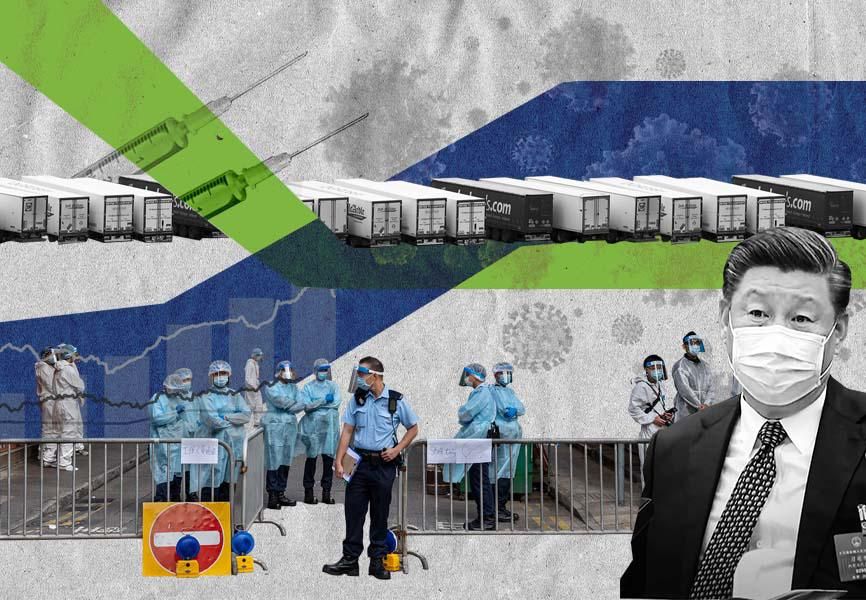5:Zero-COVID in China until 2027? A senior Communist Party official, in a notice published on Monday, said the policy would remain in place for the next five years. He probably didn’t run his statement by Xi Jinping, since Chinese censors immediately scrubbed it from news sites and social media.
100 million: About $100 million worth of interest on Russian government bonds was unpaid after the grace expired on Sunday night, marking the first technical default on its sovereign debt since the Bolshevik Revolution in 1918. Still, the effect on the economy will be limited by the reality that Western sanctions have already made it extremely hard for Russia to borrow money anyway.
300,000: NATO plans to beef up its high-readiness forces to over 300,000 troops to counter big threats like Russia. The alliance’s leaders are gathering this week in Madrid for their first summit since the war in Ukraine began.
40: Maharashtra — India's richest state and home to Mumbai — is now effectively run by ... no one. Most of the cabinet is now in a hotel thousands of miles away in Assam state, talking to 40 rebel lawmakers from the “ruling” Shiv Shena party holed up there to demand the chief minister step down. They're rumored to be seeking to jump ship and form an alliance with their Hindu nationalist pals from PM Narendra Modi's BJP party.More For You
America’s new National Security Strategy confirms what Europeans have feared for months: Washington now sees a strong, unified European Union as a problem to be solved, not an ally to be supported.
Most Popular
The power of sports
What’s Good Wednesdays™, December 10, 2025
Walmart's $350 billion commitment to American jobs
In this episode of Tools and Weapons, Microsoft Vice Chair and President Brad Smith sits down with Ed Policy, President and CEO of the Green Bay Packers, to discuss how purpose-driven leadership and innovation are shaping the future of one of the world’s most iconic sports franchises. Ed shares how technology and community-focused initiatives, from Titletown Tech to health and safety innovations on the field, are transforming not just the game of football, but the economy and culture of Green Bay itself. He explains how combining strategic vision with investment in local startups is keeping talent in the Midwest and creating opportunities that extend far beyond Lambeau Field.
Subscribe and find new episodes monthly, wherever you listen to podcasts.
More than a week after Hondurans cast their ballots in a presidential election, the country is still stuck in a potentially-dangerous post-election fog.
